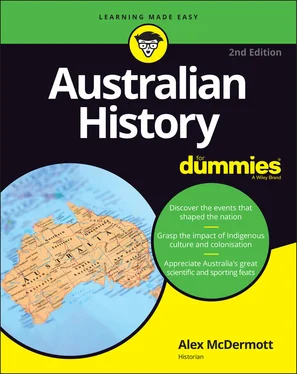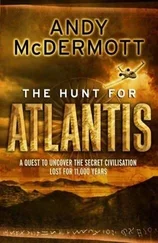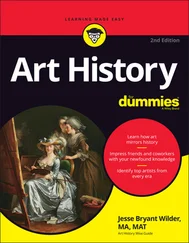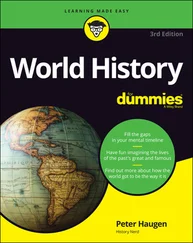 The comment of Dutch explorer Jan Carstensz sums up a whole series of disappointed Dutch traders and navigators with regards to what they thought of New Holland (modern-day Western Australia): It was ‘the most arid and barren region that could be found anywhere on the earth; the inhabitants too are the most wretched and poorest creatures that I have ever seen’. For traders wanting fancy things to take back to Europe, the ‘walking lightly on the earth’ style of Aboriginals appeared wretched and poor.
The comment of Dutch explorer Jan Carstensz sums up a whole series of disappointed Dutch traders and navigators with regards to what they thought of New Holland (modern-day Western Australia): It was ‘the most arid and barren region that could be found anywhere on the earth; the inhabitants too are the most wretched and poorest creatures that I have ever seen’. For traders wanting fancy things to take back to Europe, the ‘walking lightly on the earth’ style of Aboriginals appeared wretched and poor.
When he made his way up the east coast of Australia, British explorer James Cook had a different impression of Aboriginal life. He saw past the lack of tradeable material abundance in Aboriginal cultures and actually declared them the most contented — because most self-sufficient — of all peoples he’d encountered anywhere, including Europeans and Brits. But when Britain came calling in the late 18th century, Australia appealed to it for reasons other than trade (see Chapter 3).
Chapter 3
Second Arrivals and First Colonials
IN THIS CHAPTER
 Surveying the east coast of ‘New Holland’ with Cook
Surveying the east coast of ‘New Holland’ with Cook
 Choosing New South Wales to start a convict settlement
Choosing New South Wales to start a convict settlement
 Getting there with Phillip
Getting there with Phillip
 Staying alive once there — just
Staying alive once there — just
 Encountering hardship in the new land
Encountering hardship in the new land
If you take a casual glance at a map of the world, you’d be pretty hard pressed to find two regions that are further away from each other, and less directly related, than Britain and Australia. One’s southern hemisphere, the other’s northern. One is a continent, the other an island. One has crummy weather, the other has Bondi (you get the drift). And yet, after the Indigenous Australians (who arrived millennia previously), it was the British who were the first people to take enough of an interest in Australia to decide to establish a colony here late in the 18th century.
Britain established maritime dominance in most of the seas of the world in the second half of the 18th century, with the Pacific being the ‘last frontier’ to explore for new trade and supplies. The British also had a couple of men who proved to be outstandingly good at not only exploring the region but also, in the case of one of them at least, pushing for a colony to be established there. Captain James Cook was the explorer, while Sir Joseph Banks, his botanist on the first exploring voyage, pulled strings with powerful men once back in Britain to help convince people to plant a colony on the coast of New South Wales.
The British, when they did establish a colony in Australia, decided to begin the settlement with convicted criminals as first settlers. In the first years of the colony, the new settlers encountered all kinds of problems, made worse by global events.
In this chapter, I cover Britain’s ‘discovery’ of Australia, the reasons behind their eventual decision to establish a settlement here, and what happened in the initial years of the colony.
‘Discovering’ the Great Southern Land
By 1763 the British had gained supremacy of the world’s oceans, except for one final frontier (bom, bom, boom): The Pacific Ocean.
 Ideas about a great southern land mass in the Pacific Ocean had been circulating for millennia. In ancient times, Ptolemy had surmised that some big land mass had to be down there to counterbalance Europe and Asia, and stop the planet going all topsy-turvy and flipping over. Throughout the 17th century, more solid evidence started emerging, largely thanks to reports from the mostly Dutch explorers in the region. (Refer to Chapter 2for more on these explorers and traders.) It was time for Britain to make its mark.
Ideas about a great southern land mass in the Pacific Ocean had been circulating for millennia. In ancient times, Ptolemy had surmised that some big land mass had to be down there to counterbalance Europe and Asia, and stop the planet going all topsy-turvy and flipping over. Throughout the 17th century, more solid evidence started emerging, largely thanks to reports from the mostly Dutch explorers in the region. (Refer to Chapter 2for more on these explorers and traders.) It was time for Britain to make its mark.
For this daring task, two men were chosen: James Cook and Joseph Banks. Between them, they managed to chart the east coast of Australia, and have some lovely fun documenting all the weird and wonderful new flora and fauna they encountered along the way.
Finding the right men for the job
Two men from each side of the tracks. This part of the story belongs to Englishmen James Cook and Joseph Banks: One born in rural obscurity as a son of a labourer in Yorkshire; the other born the son of a gentleman and parliamentarian of significant wealth. One would end his life being clubbed to death on a beach in Hawaii (this would be Cook); the other as a Privy Council member and Royal Society President, dividing his time between Bath and Soho Square (big hello to Banks). (See the sidebar ‘The original odd couple: Cook and Banks’ for more on this unlikely duo.)
Between them, Cook and Banks not only managed to put Australia on the map in the most literal sense (even if it was still being called New Holland; see Chapter 5for more on how the continent’s name was changed to Australia), but also helped ensure that the first European settlement of the Australian continent was begun. The founding of the modern nation of Australia begins with these two men — and the British Royal Society.
THE ORIGINAL ODD COUPLE: COOK AND BANKS
James Cook and Joseph Banks were integral to the charting and settlement of Australia by Britain, but two more different men could not have been picked for the job.
James Cook was born in 1728. He grew up on a farm in rural Yorkshire and began his working life apprenticed to a grocer. Not finding that to be quite the adventure best suited to his mental horizons, however, Cook managed to get himself apprenticed instead to a coal-shipper who operated in the North Sea. From this, he graduated to the Royal Navy, picking up expertise in mathematics and navigation somewhere along the way.
By 30 he was serving in Canada during the Seven Years War with France. Thanks to his precision surveying in the St Lawrence River, the French city of Quebec was captured. After this he was given a bigger job — surveying Newfoundland, something he clearly enjoyed so much that getting married in 1762 delayed him only temporarily. He was soon back in the harness finishing the job (perhaps aligning wife Elizabeth with the Quebecois on the list of people he was rubbing the wrong way). His work in Newfoundland, however, was what got him noticed and meant he was selected as commander for the1768 scientific expedition to the South Seas.
Cook, it seems, was meticulous with everything he did, whether surveying and charting inlets and rivers, or ensuring his crew stuck rigorously to a new diet to avoid scurvy. He was a stickler with those beneath him — he flogged often (especially in his third and last expedition to the South Pacific) — but was trusted too.
Joseph Banks was born in 1743. His father a member of parliament, and young Joseph himself enjoyed Harrow, Eton and Oxford. The wildflowers at Eton (he later said) sparked an interest in botany — this interest certainly helps explain why such a bright lad did so lamentably badly at his study of Greek and Latin. On getting to Oxford, he was horrified to find that the university had no botanist on hand to tutor him, so he was allowed to bag one from Cambridge.
Читать дальше

 The comment of Dutch explorer Jan Carstensz sums up a whole series of disappointed Dutch traders and navigators with regards to what they thought of New Holland (modern-day Western Australia): It was ‘the most arid and barren region that could be found anywhere on the earth; the inhabitants too are the most wretched and poorest creatures that I have ever seen’. For traders wanting fancy things to take back to Europe, the ‘walking lightly on the earth’ style of Aboriginals appeared wretched and poor.
The comment of Dutch explorer Jan Carstensz sums up a whole series of disappointed Dutch traders and navigators with regards to what they thought of New Holland (modern-day Western Australia): It was ‘the most arid and barren region that could be found anywhere on the earth; the inhabitants too are the most wretched and poorest creatures that I have ever seen’. For traders wanting fancy things to take back to Europe, the ‘walking lightly on the earth’ style of Aboriginals appeared wretched and poor. Surveying the east coast of ‘New Holland’ with Cook
Surveying the east coast of ‘New Holland’ with Cook Ideas about a great southern land mass in the Pacific Ocean had been circulating for millennia. In ancient times, Ptolemy had surmised that some big land mass had to be down there to counterbalance Europe and Asia, and stop the planet going all topsy-turvy and flipping over. Throughout the 17th century, more solid evidence started emerging, largely thanks to reports from the mostly Dutch explorers in the region. (Refer to Chapter 2for more on these explorers and traders.) It was time for Britain to make its mark.
Ideas about a great southern land mass in the Pacific Ocean had been circulating for millennia. In ancient times, Ptolemy had surmised that some big land mass had to be down there to counterbalance Europe and Asia, and stop the planet going all topsy-turvy and flipping over. Throughout the 17th century, more solid evidence started emerging, largely thanks to reports from the mostly Dutch explorers in the region. (Refer to Chapter 2for more on these explorers and traders.) It was time for Britain to make its mark.










